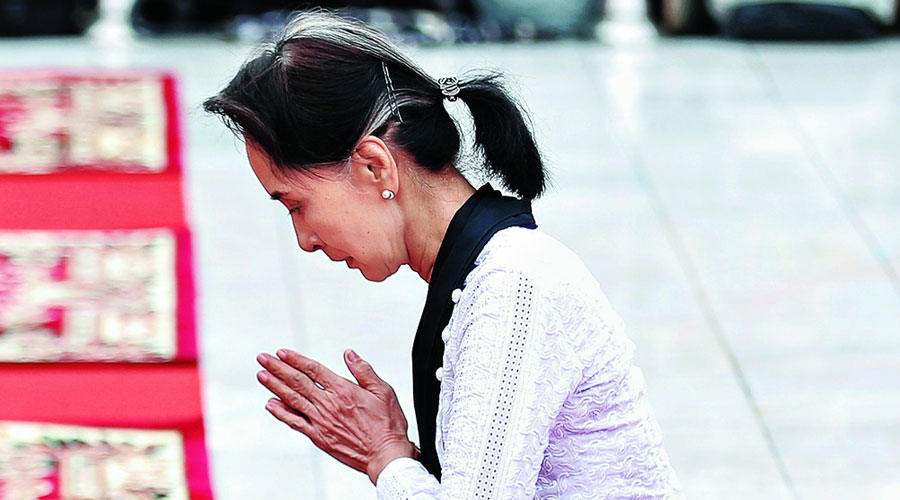Myanmar’s pro-democracy icon, Aung San Suu Kyi, has led her National League for Democracy to a resounding electoral victory, triumphing over anti-incumbency, a raging pandemic and festering ethnic insurgencies. Her achievement is only bettered by her next-door neighbour, Sheikh Hasina Wajed, now in her third electoral tenure and presiding over a booming economy despite the Covid-influenced downturn. The two ladies join other successful women politicians like New Zealand’s prime minister, Jacinda Ardern (also returned to power), and the German chancellor, Angela Merkel, whose handling of the Covid crisis has been far better than populist male heavyweights like Donald Trump.
The NLD has crossed its 2015 tally of 390 seats. It needed 322 to form the government — it already has a higher number of seats. That such a decisive victory could be achieved goes to show that there is no credible alternative to Aung San Suu Kyi. “People clearly realized the need for the NLD to get enough votes to form a government on their own, said the NLD spokesman, Myo Nyunt, insisting that NLD’s return to power would help “minimize political conflict”. That, however, is easier said than done.
The all-powerful military, the Tatmadaw, has threatened to impeach the president, who is known to be close to Suu Kyi and is helping her run the country, if the elections are found to be flawed. The military-aligned Opposition, the Union Solidarity and Development Party, that was trounced has alleged that the election was neither free nor fair. It has demanded that the Union Election Commission step down and the polls be re-run. Despite a large number of voters alleging that their names did not figure in the rolls, poll observers have concluded that voting took place smoothly. But they have condemned what they describe as the Election Commission’s lack of transparency and its cancellation of the polls across areas with ethnic minorities citing security reasons. That is exactly what the military, worried over the NLD’s sweeping mandate, may now try to play up.
The military is worried that the decisive mandate may now embolden the NLD to press for critical amendments to the 2008 Myanmar Constitution that gives the men in uniform one-quarter of all Parliament seats and control over three ministries — home, defence, border affairs. The NLD is also keen to see an end to the provision that no Burmese with a foreign spouse can contest for high positions like that of the president — a ploy to keep Suu Kyi from getting the top job because her late husband was British. The NLD-sponsored amendments to target these provisions during its first term in power failed because the ruling party could not garner the majority needed to bring changes to the Constitution. But a sweeping majority may make a real difference.
Suu Kyi has made the first smart move immediately after being assured of a clear victory: her party called for a ‘national unity government’ with ethnic minority parties to establish a ‘democratic federal union’. The NLD sent a letter to 48 ethnic political parties, pledging to prioritize the desires of ethnic nationalities in the future.
Suu Kyi is seeking to achieve political consensus to give the restive minorities a stake in running the government to weaken the rebel groups that thrive on the narrative of alienation; revive and strengthen the national reconciliation process through an effective dialogue with armed ethnic rebel groups; keep the army under control because the global community would welcome the reconciliation process to end decades of civil war that has plagued the country since Independence.
Suu Kyi needs global support to push the democratic agenda in Myanmar and keep the military in check. A successful dialogue with the armed ethnic rebel groups would help her get over the loss of image after her tactical silence on the military’s alleged ethnic cleansing of Rohingya Muslims in Rakhine. It may also help Myanmar become a thriving tourist and investment destination. Such a transition would ensure that Myanmar’s resources translate into growth and prosperity.











